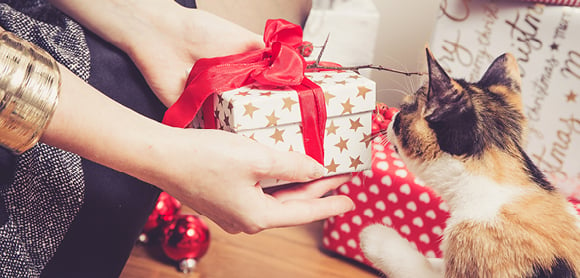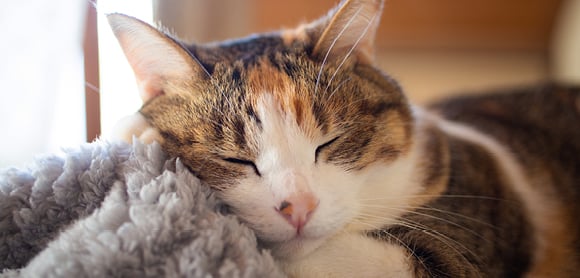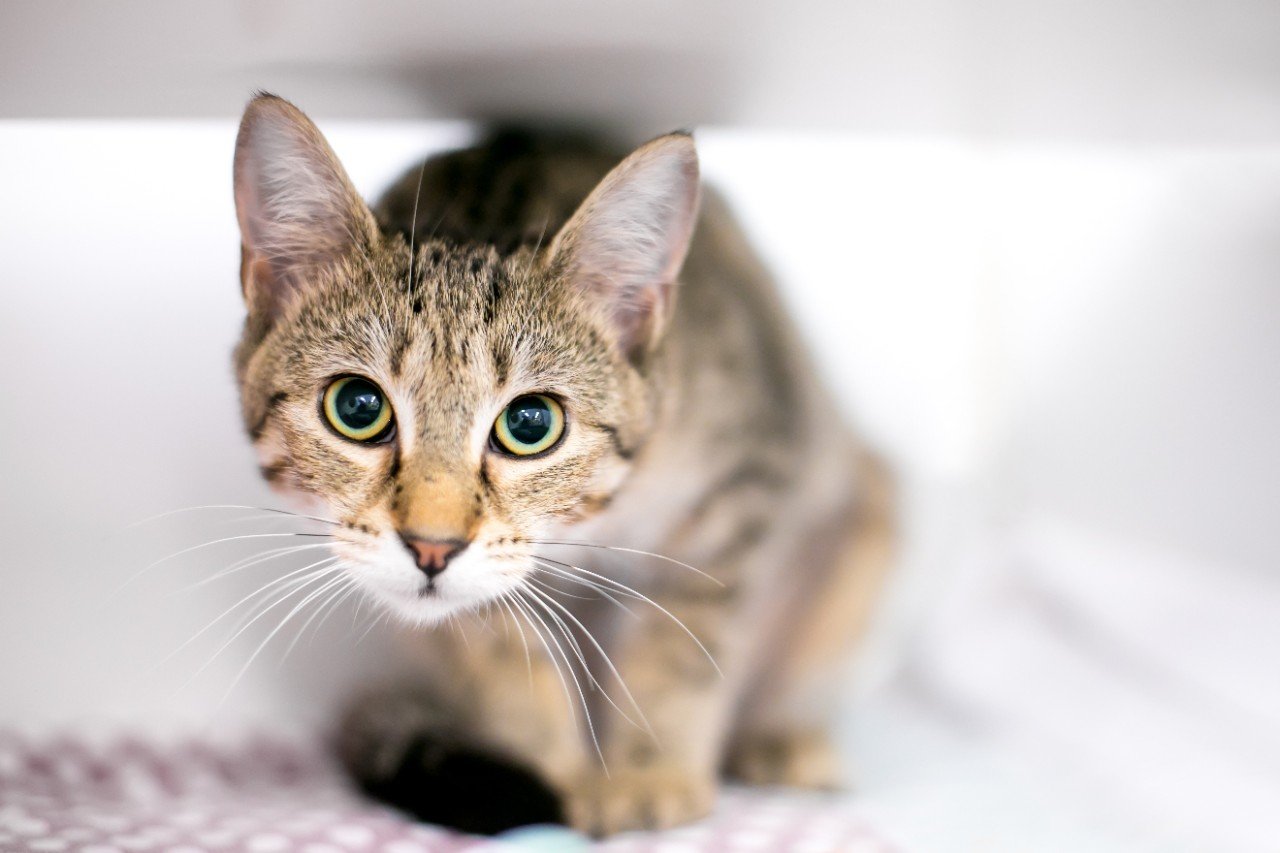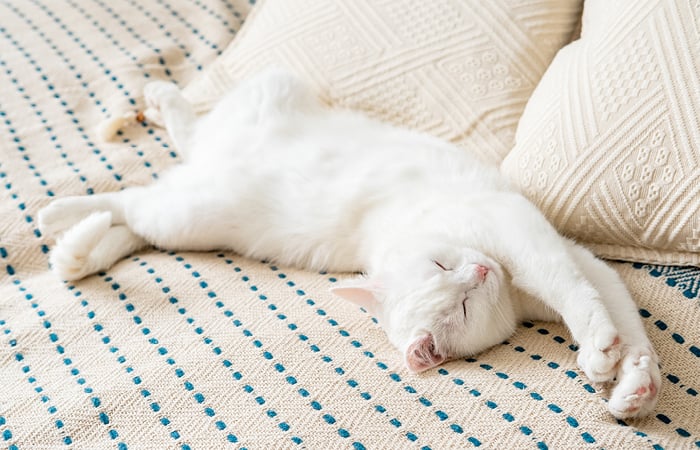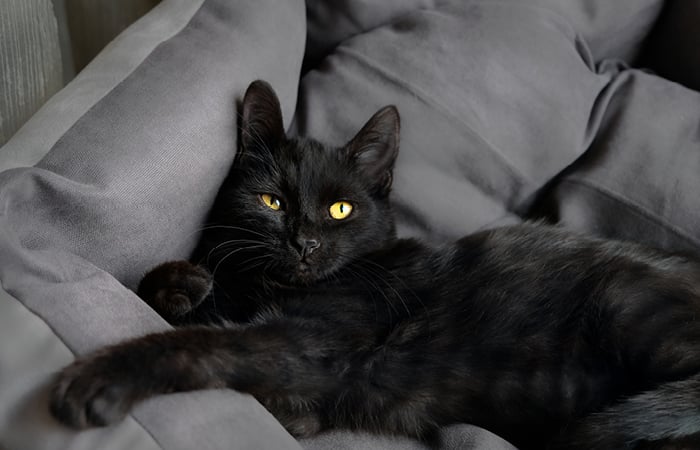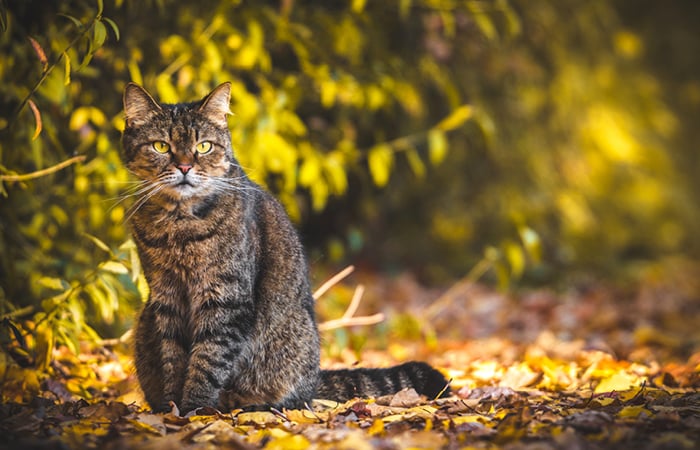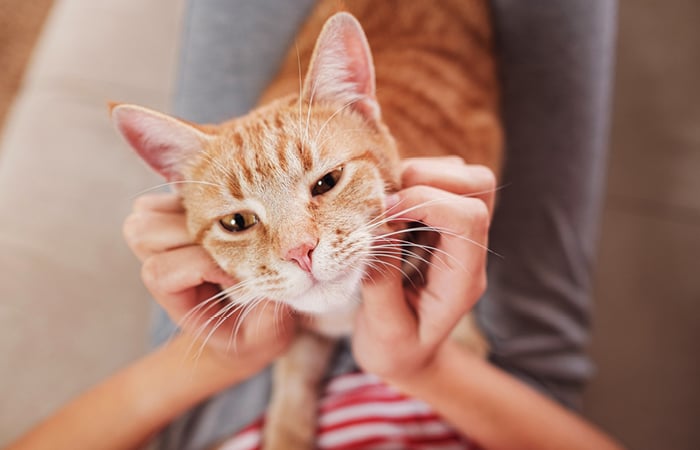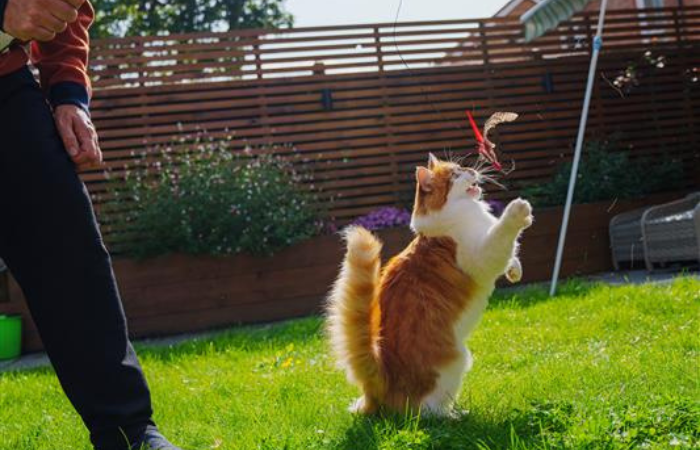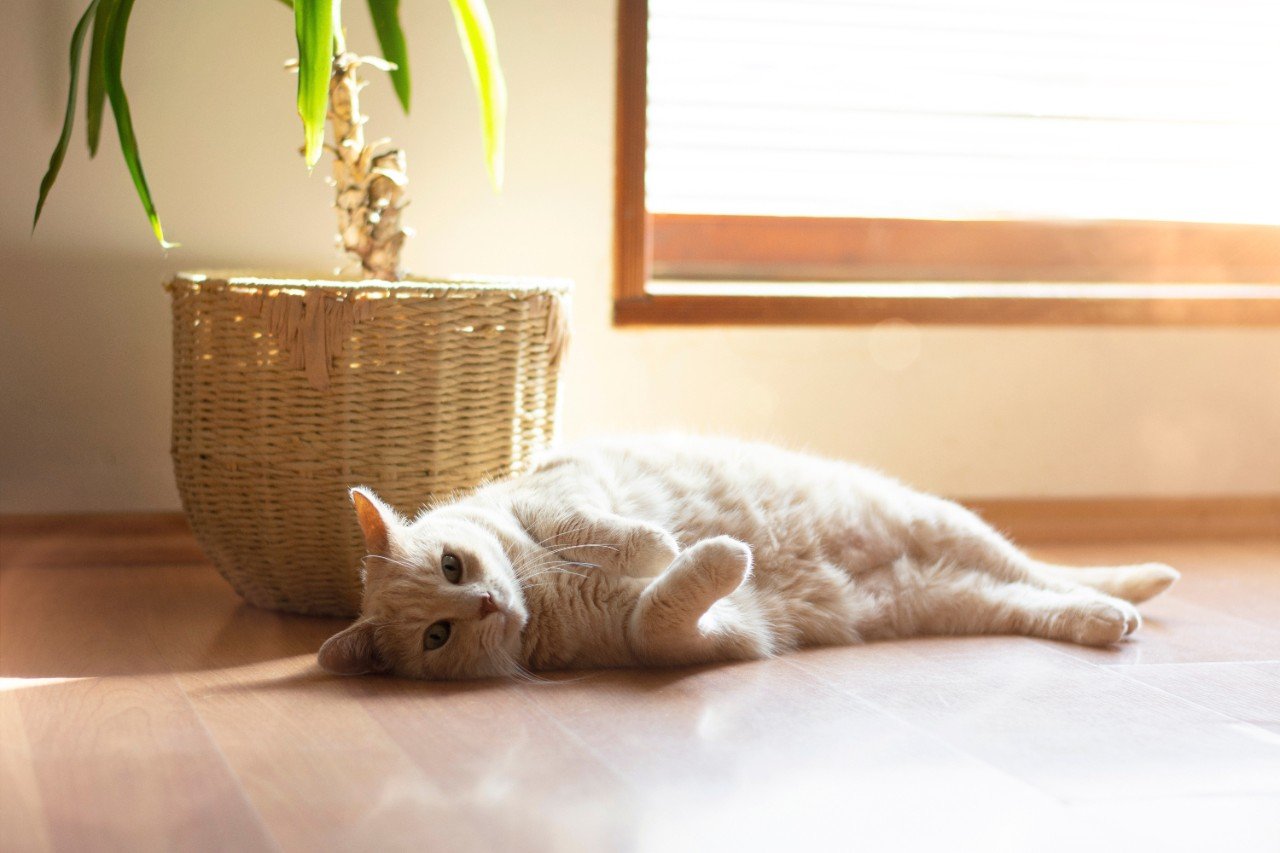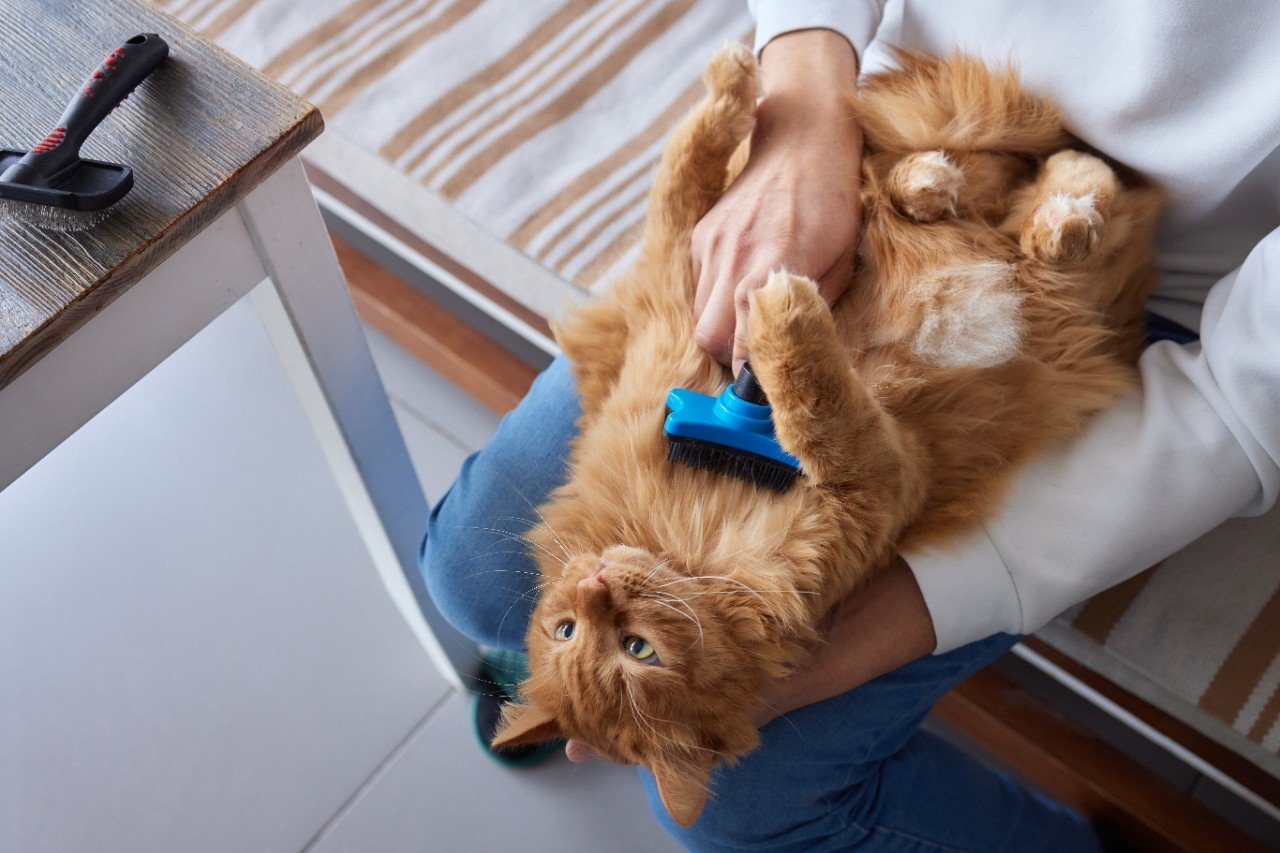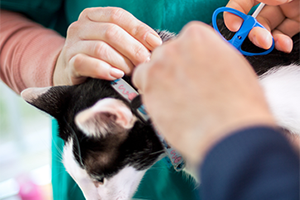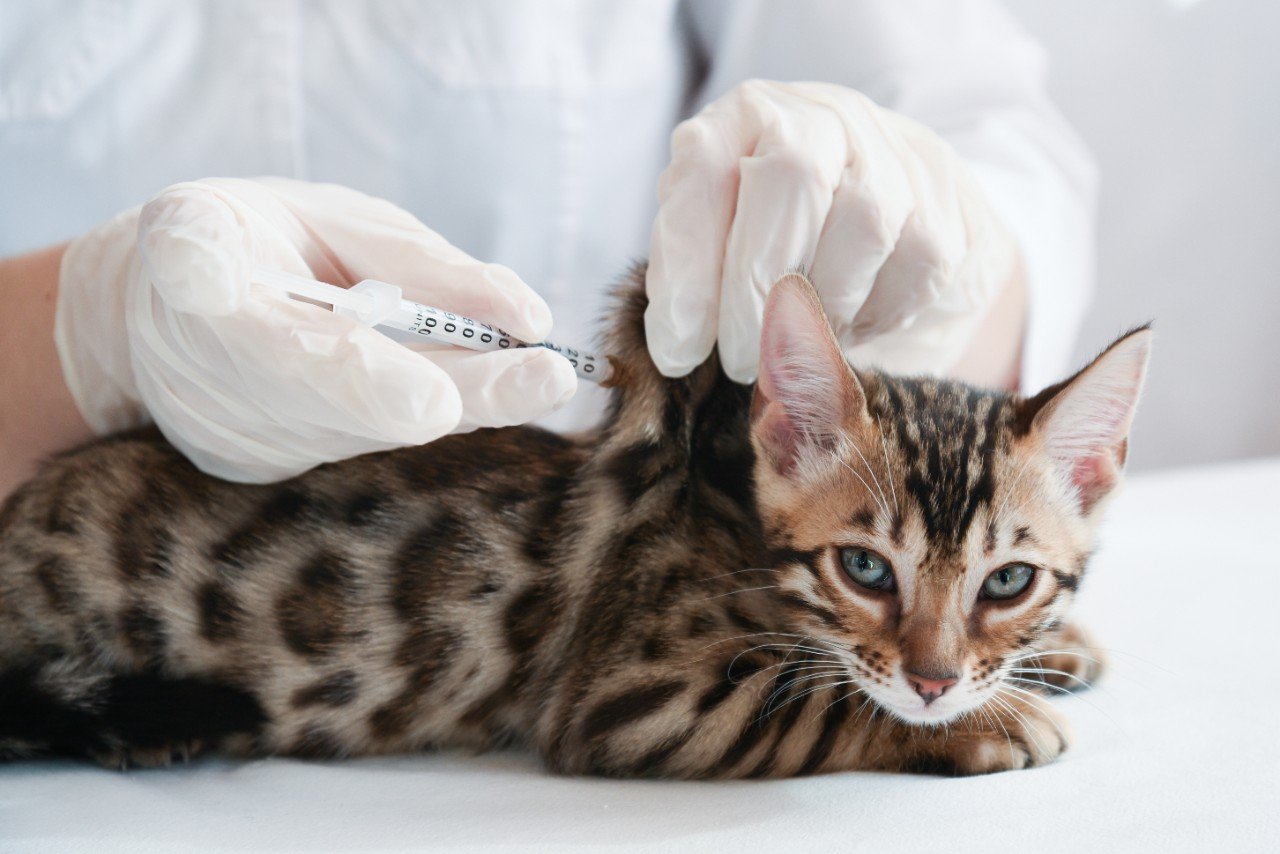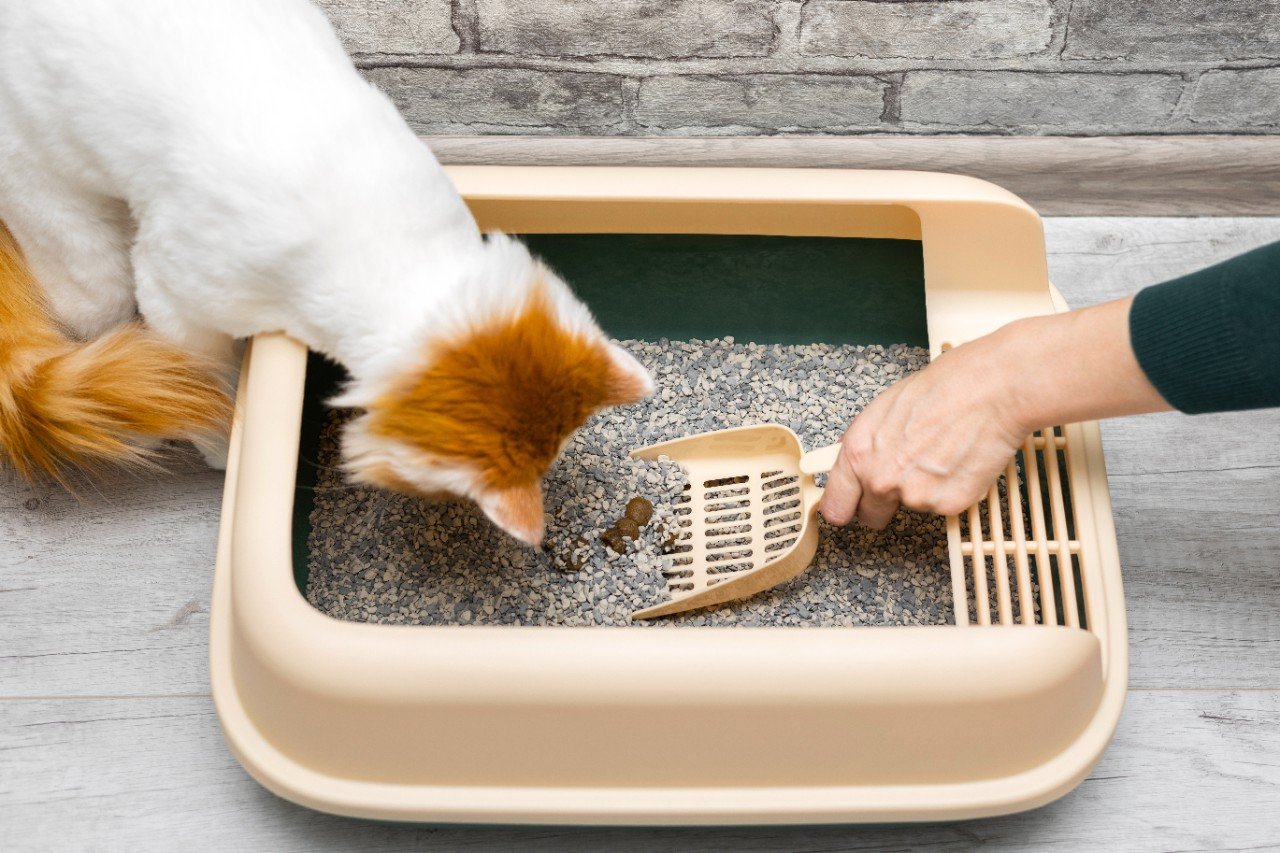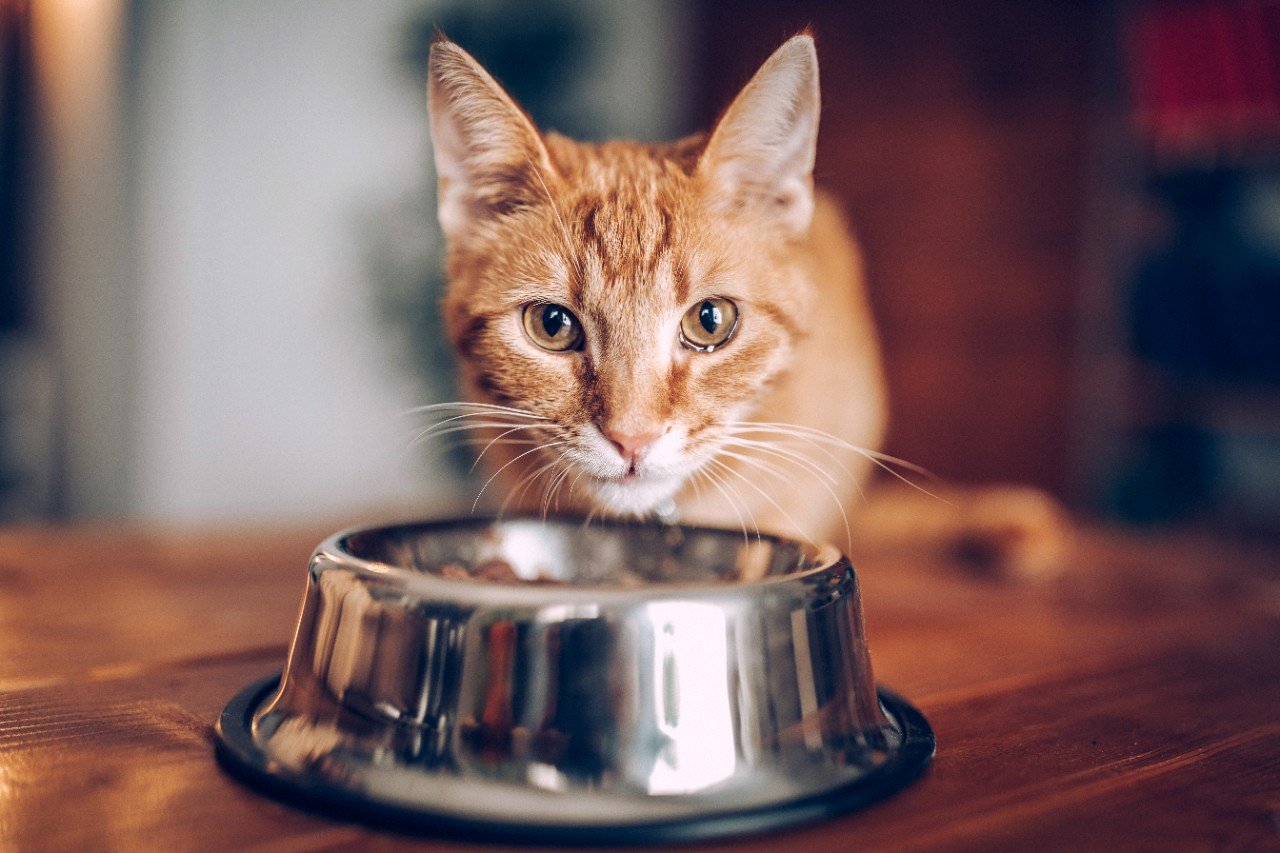
Abyssinian

A playful friend who loves human company
Vital stats
Swipe to view more
| Size: | Medium |
| Coat: | Short and dense |
| Life span: | Up to 15 years |
| Temperament: | Mischievous, intelligent, loving |
Abyssinian personality & temperament

The Abyssinian cat’s personality is chatty and inquisitive, and they make lovely feline companions for both pets and children.
- The Abyssinian might look graceful and petite, but their personality is more boisterous than their regal bearing suggests.
- These cats also have a surprisingly good temperament with dogs as well as humans – despite their well-known cautious streak. However, every pet is an individual so make sure you introduce your Abyssinian to other pets carefully and on their terms.
- Abyssinian cats are quietly chatty with an appealing chirpy voice and won’t be shy about reminding you it’s dinner time.
- While Abyssinian cats are content in their own company for short periods of time, they are happiest in company – long spells alone aren’t recommended.
- They might not be lap cats, but Abys usually adore people and can make fantastic companions. They are well suited to households with older children who are able to recognise if a cat needs their own space.
- Abyssinian cats often retain a kittenish character throughout their life. They love to play games, especially with cat toys. They respond well to praise and can surprise you with their talent for tricks.
Abyssinian food & diet

This active breed requires a high-protein diet to keep them going.
- While you may be asking yourself what Abyssinians cats eat, there’s no specific cat food for this pedigree breed – but a regular high–protein, grain–free diet is best, as advised by your vet.
- Abyssinians are a slender breed who often work off their dinner through their active play.
- Abyssinian cat diets, as with the diet of any cat must be appropriate for age and life-stage. The best food for Abyssinian cats will differ between kittens and senior cats in line with their nutritional needs.
- All cats are obligate carnivores, which means the best diet for your Abyssinian will be meat–based.
Abyssinian grooming & coat care

Abyssinians have a short, sleek coat that is relatively low maintenance, but they’ll love to bond during grooming sessions!
- Abyssinian cat coat colours range from chestnut reds to cinnamon browns and striking blues.
- The Abyssinian cat coat is short and dense. Each hair is striped along its length, giving the coat a layered look and a slightly shimmering effect.
- Brushing once a week is usually sufficient, though this loving breed will likely enjoy the extra attention grooming brings if socialised to it as a kitten – and it’s a great way to bond with your cat!
- Grooming sessions are also a great opportunity to look for fleas, lumps and bumps, and any skin issues to catch any problems early on.
- There are plenty of options for cat grooming brushes and kits online – but remember that not all cats like the same treatment, and you may find that you need to change tack to keep your pet comfortable.
- Like all cats, it might also be necessary to trim your cat’s claws if they get too long, especially in older cats. Vet nurses can clip claws or show you how – and you can watch a video for grooming tips here.
Abyssinian training & behaviour

Quick to learn and fun-loving, Abyssinian cats love toys and games, are rewarding to train and require a lot of play and mental stimulation.
- This active and intelligent breed will thrive with an owner who has lots of time to play and interact with their cat.
- Lively games, toys and plenty of interactive play will keep this intelligent and curious breed content. If you’re looking for a calm lap–cat, the Abyssinian isn’t for you – they love to play, learn tricks, and can even be quite the performer.
- Abyssinian cats respond well to praise and positive reinforcement techniques, such as clicker training. They can even be trained to go on walks and taught to fetch - much like dogs can.
- Strong, active and athletic, Abyssinian cats love to climb and stretch. Some height in their environment is crucial and access to outdoor space would be hugely beneficial for them.
- The Abyssinian cat temperament means they are curious, which can lead to friction with locals as they explore their neighbourhood. These factors have led Abyssinian cat owners to think about contained outside areas like cat runs or ‘catios’, especially as Abyssinians are accomplished hunters.
Common Abyssinian health conditions

What to know before you buy or rehome an Abyssinian cat

The Abyssinian cat personality is friendly and outgoing – that, combined with their attractive appearance, can make them prime targets for thieves.
- Keeping Abyssinian cats indoors is possible, but will need careful planning with thought for stimulation, sufficient resources, climbing and exercise.
- Due to their intelligence, outdoor space is recommended to stimulate them and keep their days exciting.
- Abyssinian cats can make great companions for other pets, if they are well-socialised and equally matched, as well as older children who can understand their cat’s body language.
- People with demanding jobs or travel schedules should probably think twice before getting an Abyssinian kitten due to the breed’s need for company.
- The Abyssinians intelligence and boisterous nature can translate to mischief – so make sure your cupboards are secure before bringing home an Abyssinian cat!
Abyssinian frequently asked questions
Abyssinian insurance considerations
We always offer these things as standard:
Physiotherapy & pet therapies
Along with physiotherapy, which is covered within the Vet Bills benefit, we also cover Pet Therapies like herbal medicine, homeopathy and acupuncture. You can also claim for hydrotherapy, up to £500 per illness/injury in dogs and cats (no additional limit for rabbits).
Petplan is a trading name of Pet Plan Limited (Registered in England No. 1282939) and Allianz Insurance plc (Registered in England No. 84638), Registered office: 57 Ladymead, Guildford, Surrey GU1 1DB.
Pet Plan Limited is authorised and regulated by the Financial Conduct Authority. Financial Services Register No. 311969. Allianz Insurance plc is authorised by the Prudential Regulation Authority and regulated by the Financial Conduct Authority and the Prudential Regulation Authority. Financial Services Register No. 121849. Pet Plan Limited is a subsidiary of Allianz Insurance plc.
